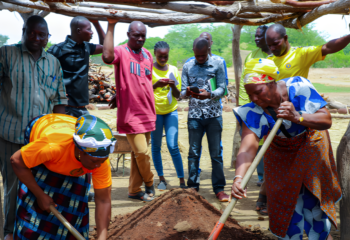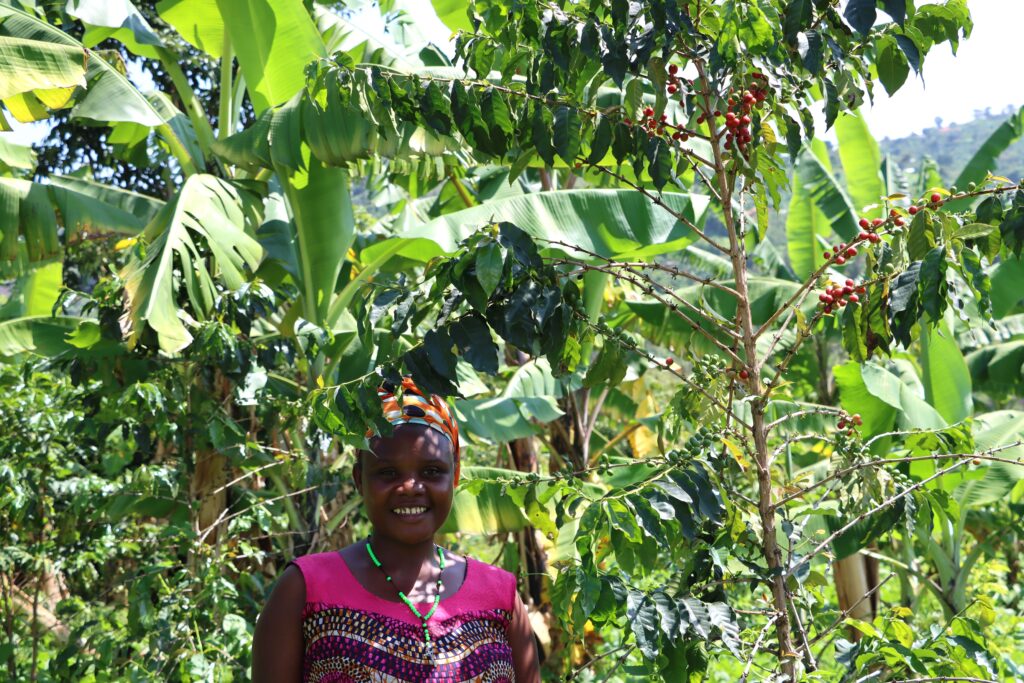
It is a Tuesday morning, Catherine Kobusingye, an arabica coffee farmer and mother of six in Bunyangabu District, is tending to her garden. She is not alone; Joseph Bwambale, a Field Extension Worker from the Kabonero Mountainous Coffee Growers Cooperative Society Limited, is there to guide her through the steps of harvesting coffee.
“Only the red cherries,” Joseph prompts her. “Keep them clean, no soil, no stones.” He then reminds her to lay out the red cherries to dry on a tarpaulin or take them to the cooperative’s solar dryer.
Catherine is one of 784 members of the Kabonero Cooperative, founded in 2013 with a powerful motto: “Together, we are stronger.” By pooling their coffee harvests together, cooperative members like Catherine have unlocked access to both domestic and international markets, securing fair prices and consistent demand.
“This support has boosted production for both the cooperative and its farmers.”
Enock Nuwabine, Agriterra BRIGHT Lead
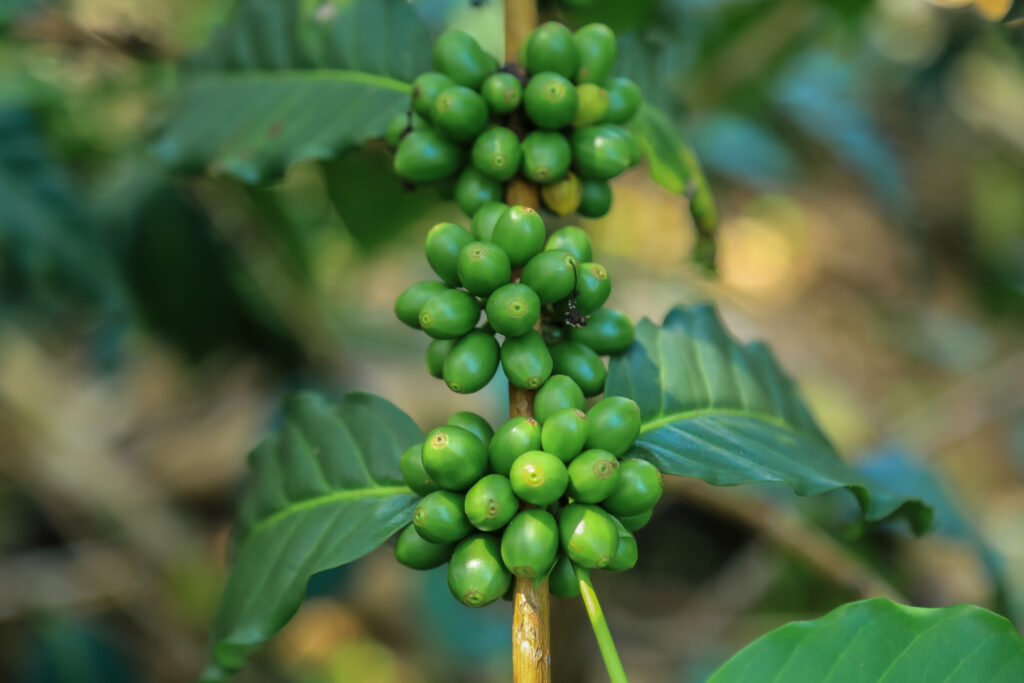
Kabonero is one of the 10 cooperatives supported by the Building Resilience and Inclusive Growth of Highland farming systems for rural Transformation (BRIGHT) project to transform their operations from the ground up.
“We have been connected to national and international coffee buyers,” declared Enosi Muthahinga, general manager of the cooperative. He added, “We have also received training in governance, record keeping, internal capitalization, and value addition. Women have been empowered to take on leadership roles. These trainings have transformed how we operate.”
Based on what they learned through these trainings from BRIGHT, leaders of Kabonero have established strong governance committees that now steer the cooperative with clarity and purpose. These committees have enabled new partnerships with financial institutions and other cooperatives.
Agriterra BRIGHT Lead Enock Nuwabine noted that, through these partnerships, “Kabonero acquired a coffee huller, which was a missing link in their value addition chain, and also secured UGX 300 million (approximately U.S. $85,745.40) from Rubanga Cooperative to bulk and profitably supply them coffee. Rubanga Cooperative extended the coffee huller to Kabonero on credit, valued at UGX 12,000,000 (approx. U.S. $3,447.82), to help Kabonero Cooperative reduce external hulling costs and boost profitability. This support has boosted production for both the cooperative and its farmers.”
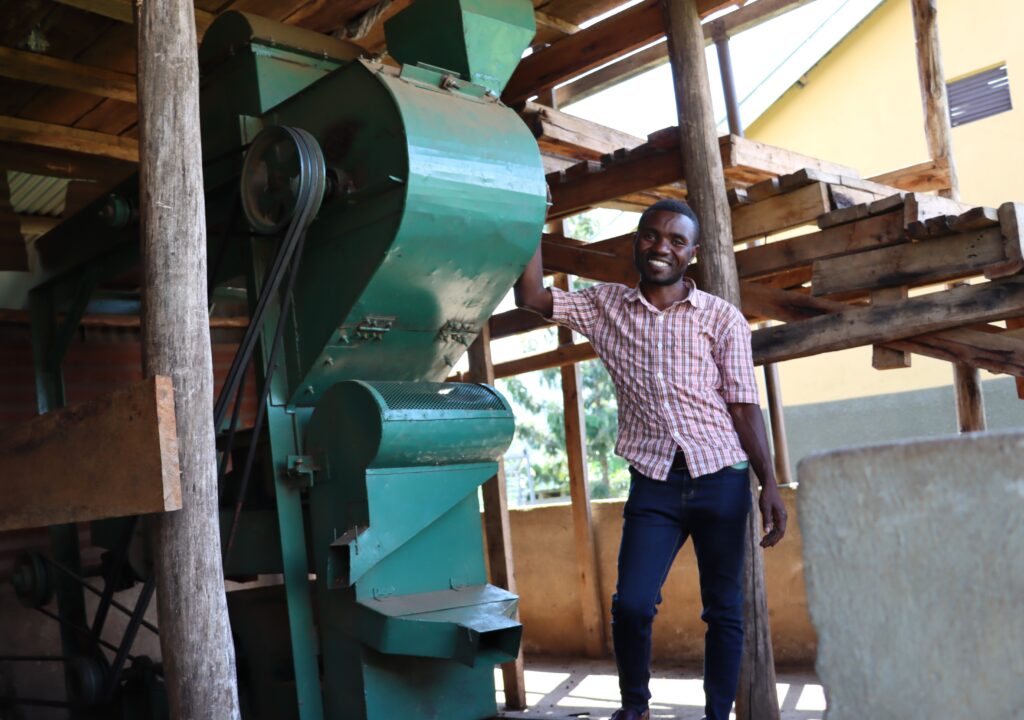
Today, Kabonera is fully equipped with pulpers, a digital weight scale, moisture meters, a roaster, grinder, and sealing machines. But equipment alone is not enough.
To strengthen their value addition processes, such as roasting, grinding, and packing arabica coffee, BRIGHT provided financial support valued at UGX 7,125,000 (approx. U.S. $2,047.14) to the cooperative, facilitated linkages with the Uganda National Bureau of Standards (UNBS), and ensured that the cooperative has access to certification requirements.
This included acquiring East African standard guidelines, submitting product and company details, and undergoing inspections.
“We were evaluated on production, storage, hygiene, and earned the Distinctive Quality Mark. This Quality Mark on our products is a dream come true. It has built consumer trust in our coffee’s quality and safety, boosted its competitiveness, and opened doors to domestic and global markets,” Muthahinga remarked.
Kabonera Cooperative now supplies ground coffee to hotels and supermarkets, including Kalya Courts Hotel in Fort Portal, and Active Supermarket in Mbarara. The cooperative has also supplied coffee outside of the country to Twin Trading in the UK and Volcafe in the U.S.
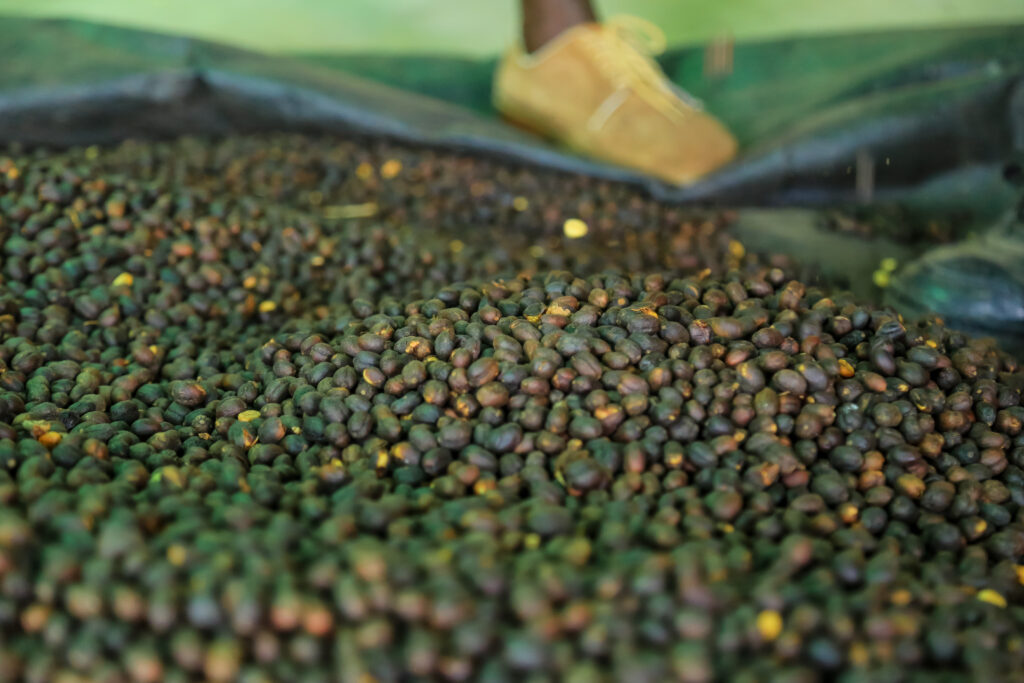
Each year, they sell an average of 40 metric tons of Fair Average Quality (FAQ) coffee — dried and hulled — at UGX 13,000 (approx. U.S. $3.72) per kilogram, and all proceeds go back to the smallholder farmers.
Thanks to the well-structured and efficient nature of the cooperative, members now access high-quality subsidized agricultural inputs and services for less.
Seedlings cost UGX 300,500 (approx. U.S. $0.09-$0.14) instead of 1,000 (approx. U.S. $0.29) on the open market, and the removal of the coffee parchment layer from the bean (hulling services) costs around UGX 150 (approx. U.S. $0.04) as opposed to 200 (approx. U.S. $0.06) elsewhere.
Additional benefits abound for cooperative members. “Our farmers receive instant cash payments, bonuses of UGX 500 (approx. U.S. $0.14) per kilogram sold, annual dividends, agronomic training, and essential tools like hoes, slashers, and tarpaulins,” Muthahinga explained.
The cooperative has unlocked a ready market for members’ produce and improved access to quality inputs, boosting productivity, profitability, and household incomes, while improving the overall livelihoods of smallholder farmers.
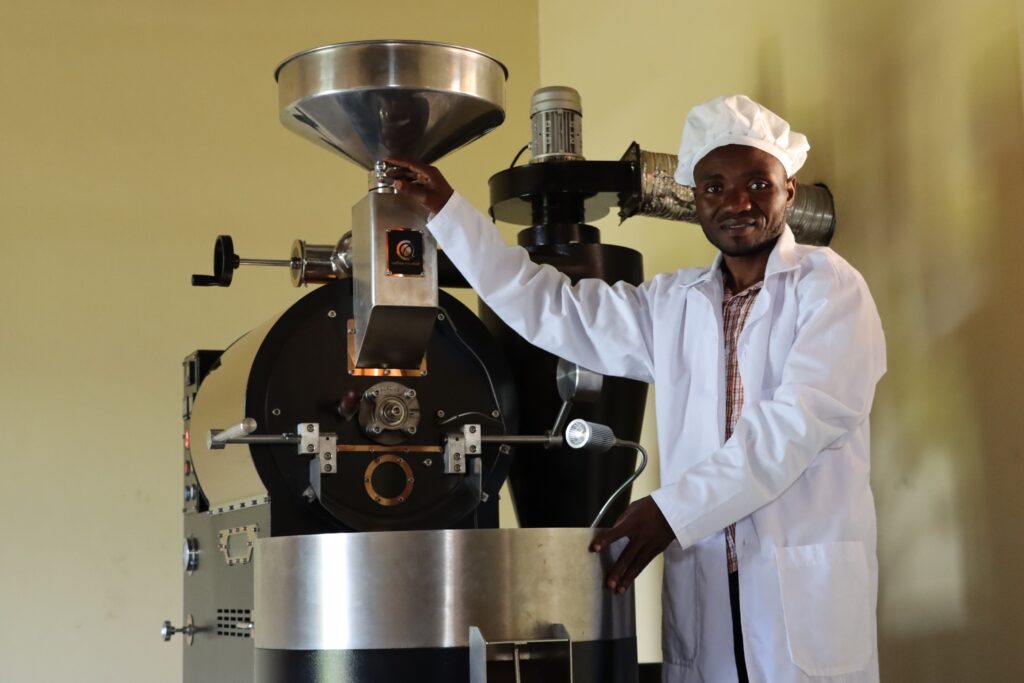
Among those benefiting is Catherine who harvests an average of six bags of red cherries per season, which she dries and sells to the cooperative. She shares that the cooperative helps farmers like her to access reliable markets and secure fair prices (UGX 13,000 per FAQ coffee kilogram) (approx. U.S. $3.74 per kilogram).
With her earnings, she is able to meet essential household needs such as food and education and invest to increase her income. “I am able to take my children to school,” she says proudly, “and I have purchased an extra half an acre of land where I plan to expand my garden and venture into cocoa farming, so I can earn from both coffee and cocoa.”
For Catherine and others like her, coffee is no longer just a crop; it’s a source of stability and opportunity in a growing market. As BRIGHT continues to strengthen cooperatives and their operations, partnerships like these connect farmers to wider markets, improving incomes and shaping a more inclusive and resilient agricultural future for their communities.
The Building Resilience and Inclusive Growth for Highland Farming Systems for Rural Transformation (BRIGHT) project, funded by the Netherlands Ministry of Foreign Affairs through the Embassy of the Kingdom of the Netherlands, seeks to build the resilience capacity of farm households and farming systems in Uganda to increase income and food and nutrition security of all farmers and transform households from subsistence to more market-oriented in Kigezi, Mount Elgon, and Rwenzori regions. The project is being implemented by the International Fertilizer Development Center (IFDC) in cooperation with Agriterra, the Uganda Ministry of Agriculture, Animal Industry and Fisheries (MAAIF), the National Agricultural Research Organization (NARO), district local governments, and private sector partners.



